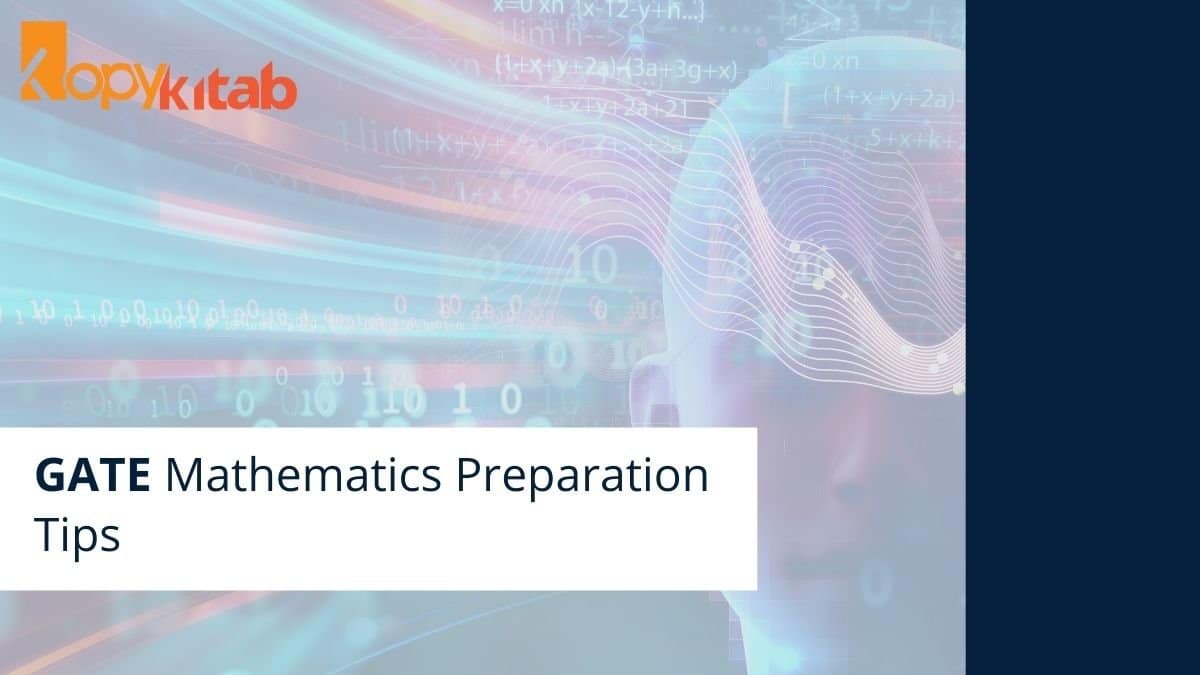
GATE Mathematics Preparation Tips: Engineering Mathematics, as a subject, is very much relevant to the GATE exam as the weight-age given to this subject has been consistent over the years in comparison to other subjects. Every year you can find the weight-age of this subject to be 8 to 10 marks. So the key to prepare for such subjects is to keep short notes handy with you or maybe you can have a sort of Formula Sheet so that you can look up to a concept whenever you need it.
Get complete guide on GATE Mathematics Preparation Tips
Tips and tricks To Get AIR 1 in GATE Mathematics
Get Exclusive GATE Mathematics Preparation Tips :-
- Do not panic under any circumstances.
- Always Have a Correct Study Plan Ready
- Focus On Getting The Basics Right First
- Instead of rushing through the whole curriculum and burning yourself out, focus on the important and scoring areas first.
- Complete as many exercises and tests as possible.
- Practice at least 2030 questions on each topic you prepare so that you can perfect it.
- Select which topics to start with first.
- Repeat each topic you study so that you remember it, and repeat until you have mastered it.
- Try to write down all important concepts and formulas separately.
- Spend at least 12 hours doing math alone as part of your preparation.
- Take short study times and challenge yourself with some daily goals and try to achieve them.
- Be confident and stay engaged and focused on your goal because motivation is the most important thing that continues to inspire you to be committed to your goal.
Gate Mathematics By Dr N K Singh
GATE Mathematics Preparation Tips: Topic wise GATE Mathematics Syllabus
| TOPICS | SUB-TOPICS/CONCEPTS |
| Calculus |
|
| Linear Algebra |
|
| Real Analysis |
|
| Complex Analysis |
|
| Ordinary Differential Equations |
|
| Algebra |
|
| Functional Analysis |
|
| Numerical Analysis |
|
| Partial Differential Equations |
|
| Topology |
|
| Linear Programming |
|
We have included complete information regarding GATE Mathematics Preparation Tips. If you have any issues feel free to ask in the comment section.
FAQ: GATE Mathematics Preparation Tips
Can I skip maths in GATE?
It’s not advisable to skip any subject as Mathematics alone comprises 15-17 marks each year no matter which stream you prepare for.
Can we crack GATE without maths?
Yes, you can crack GATE without maths also.
Are 6 months enough to crack GATE?
It is advised to start preparing early, preferably in the pre-final year of the course so that students have ample time to cover the entire GATE syllabus.
What is the GATE cut-off score?
GATE cutoff is the minimum marks that test-takers need to score to be eligible for admission to MTech, MSc, and Ph.D. courses offered at the participating institutes.
What are GATE Mathematics Preparation Tips?
You can refer to the above article to know about GATE Mathematics Preparation Tips.
How to score AIR 1 in GATE?
You can refer to the above article to know GATE Mathematics Preparation Tips.

